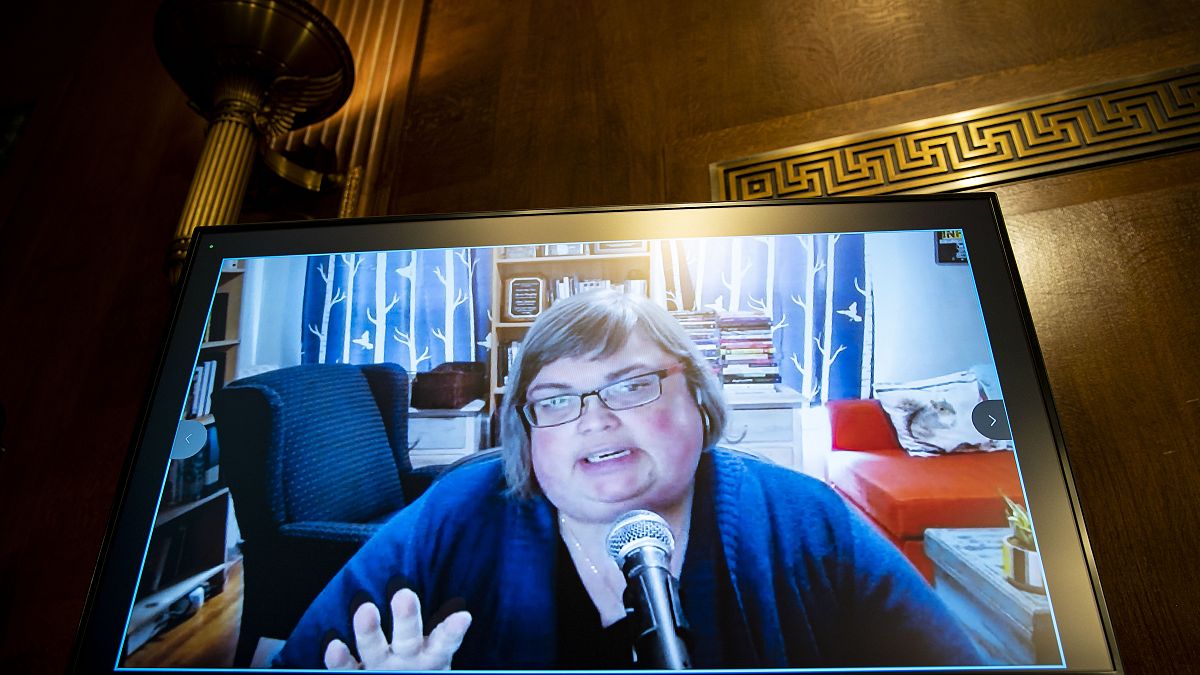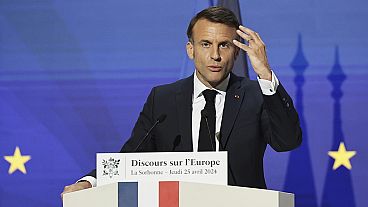One of the world's leading experts on social media disinformation has filed a whistleblower disclosure to investigate Meta's influence at Harvard.
A prominent disinformation scholar has alleged that leadership at Harvard University's Kennedy School was "inappropriately influenced by Meta/Facebook".
Dr Joan Donovan, who left Harvard in August, claimed that she and her research team came under increased scrutiny from leaders at the Kennedy School after beginning work on a trove of Facebook files.
She had intended to create a public archive with a collaborative platform for research on analysing the documents gathered by former Facebook employee Frances Haugen.
Donovan said instead she faced efforts to stifle her research.
The actions impacting Donovan's work coincided with a $500 million (€461 million) donation in December 2021 to Harvard by a foundation run by Facebook founder Mark Zuckerberg and his wife Priscilla Chan.
In a whistleblower disclosure made public on Monday, Donovan seeks urgent investigations into "inappropriate influence" from Harvard's general counsel and president, the Massachusetts attorney general's office, and the US Department of Education.
"This is a shocking betrayal of Harvard’s academic integrity and the public interest," said Libby Liu, the CEO of Whistleblower Aid, a non-profit organisation supporting Donovan.
"We’ve seen in the past how Big Tobacco, Big Energy and Big Pharma have succeeded in influencing, undermining, and co-opting research to protect their lies, their profits and evade accountability.
"Now Meta, with the complicity of a powerful ally, is following the same playbook. Whether Harvard acted at the company’s direction or took the initiative on their own to protect Meta’s interests, the outcome is the same: corporate interests are undermining research and academic freedom to the detriment of the public".
Harvard rejects allegations
Donovan is cited by Whistleblower Aid as saying her research team and their projects were subjected to "death by a thousand cuts".
She also claims that the dean of the Kennedy School Douglas Elmendorf had close ties to Facebook.
In one passage of the whistleblower disclosure, Donovan says that following a January 2022 meeting with the dean, her programme was "starved of personnel and the grants management process ground to a halt".
Harvard's Kennedy School rejected the disclosure’s allegations of unfair treatment and donor interference.
"The narrative is full of inaccuracies and baseless insinuations, particularly the suggestion that Harvard Kennedy School allowed Facebook to dictate its approach to research," spokesman James F Smith said in a statement.
Meta spokesman Andy Stone said the company had no comment on the dispute between Donovan and Harvard.
Donovan has called the so-called Facebook Files "the most important documents in the history of the Internet".
Harvard hired Donovan, now an assistant professor at Boston University, in 2018, where she led the Technology and Social Change Research Project. In May 2020, she was promoted to research director of the Kennedy School's Shorenstein Centre, where she lectured.
In its statement, the Kennedy School denied that Donovan was fired.
It said she was a staff member, not a faculty member, and added that all research projects at the school must be led by faculty members.
Zuckerberg's Harvard connection
The school "tried for some time to identify another faculty member who had time and interest to lead the project. After that effort did not succeed, the project was given more than a year to wind down" and most members of the research team remained in research roles. Donovan said Harvard offered to let her continue as a lecturer but without health insurance.
Donovan said she was not aware of any search for someone to take over as head of the research project, which she founded and for which she said she had raised $12 million (€11.1 million).
In its statement, The Kennedy School said it "did not receive any portion of the Chan-Zuckerberg gift," which went to Harvard University for an unrelated artificial intelligence (AI) initiative.
Both Chan and Zuckerberg went to Harvard, where Facebook was first launched.
Harvard ultimately did release an archive of the Facebook Files though Donovan said it was considerably less ambitious and open than she envisioned.
Meta was consulted on redactions to the roughly 20,000 images in that archive and the Kennedy School team managing it decided to make about 160 of the more than 800 redactions requested by the company - in nearly every case to remove the name of low-level Meta employees or outside people for privacy reasons, Smith said.
He added that the Kennedy School’s Public Interest Tech Lab gave researchers early access to the archive in May 2023 and it became more fully public in October.



